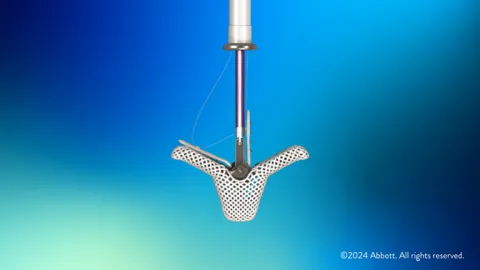- Our Research
- Education
- Giving
- News & Events
- About Us
- Donate
KSTP-TV News Feature—TriClip Device for Tricuspid Regurgitation
Apr 12, 2024
Image

The Minneapolis Heart Institute Foundation team is honored to celebrate the culmination of years of research that has resulted in new technologies for patients! Over the last two years, we celebrated the FDA approval of the ReCor renal denervation technology and the Heart-in-a-Box system for heart transplants; in the last week, we announced a similar research milestone with the FDA approval of the TriClip system for tricuspid regurgitation (manufactured by Abbott).
TriClip is a first-of-its-kind, minimally invasive clip-based device that is specifically designed for the tricuspid valve, which is often referred to as the “forgotten valve” due to historically limited treatment options. It's a therapy for patients with a leaky tricuspid valve, a condition known as tricuspid regurgitation (TR).
We celebrated this important milestone with local media KSTP-TV, who spotlighted the importance of this new technology:
These historic examples of research show the true impact of our work for our community and patients. We are grateful for our partnership with the physicians and team at Allina Health and Allina Health Minneapolis Heart Institute® who have significantly supported these efforts to lead world-class research that advances care for patients around the world.
Thank you to Ben Henry and Kevin Doran at KSTP for sharing the story of an amazing new technology that is helping patients across the globe! Link to original KSTP story.
Image

About Tricuspid Regurgitation (leaky tricuspid heart valve)
Tricuspid valve regurgitation is a condition in which the valve between the two right heart chambers (right ventricle and right atrium) don’t close properly, allowing blood to flow backward into the right atrium of the heart. The disease is often debilitating, causing symptoms such as shortness of breath and fatigue, and when left untreated, may progress into conditions such as atrial fibrillation (AF), heart failure and, ultimately death.
Traditionally, the only treatment options for TR have been surgery, which is rarely performed due to the complexity of the procedure and high risks involved, and medical therapy, which is usually not successful in reducing TR. Abbott’s TriClip device provides a much-needed treatment option for people suffering from this condition.

